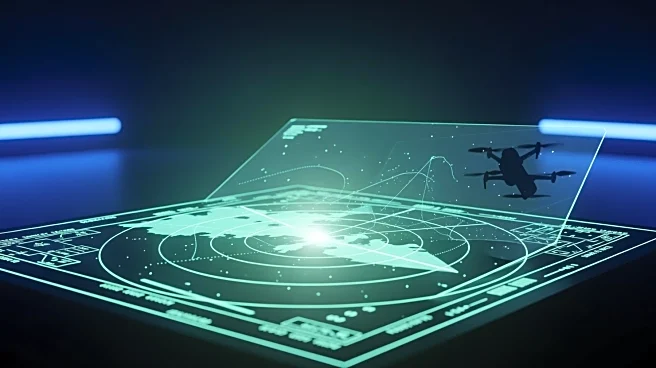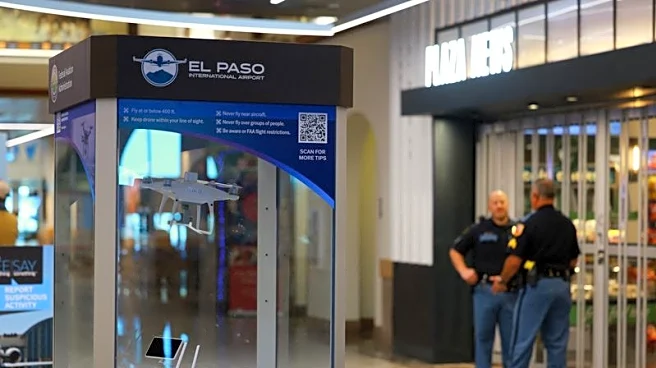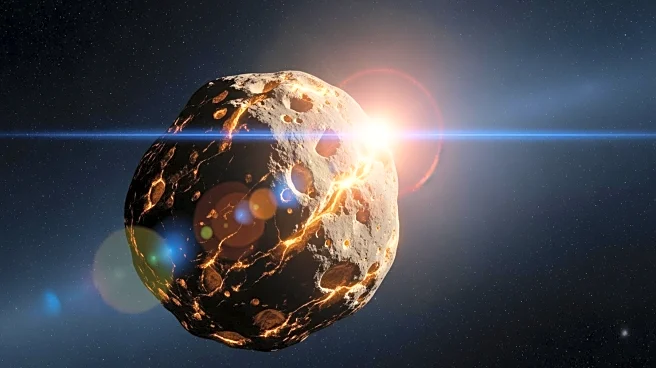What's Happening?
Three Chinese astronauts, part of the Shenzhou-21 crew, are currently stranded aboard the Tiangong space station due to a collision with space debris that affected their return vehicle, Shenzhou 20. In response, the China Manned Space Agency (CMS) has
launched the Shenzhou-22 mission, marking China's first-ever emergency space mission. The uncrewed Shenzhou-22 spacecraft was launched from the Jiuquan Satellite Launch Centre using a Long March-2F rocket. Originally scheduled for a manned mission in April 2026, Shenzhou-22 has been repurposed to serve as a replacement crew ship for the stranded astronauts. The decision to launch the emergency spacecraft was made after authorities discovered cracks on the Shenzhou 20 spacecraft, which was repurposed to return the Shenzhou 20 crew. The CMS has confirmed that the Shenzhou-21 crew is in good condition and working normally in orbit.
Why It's Important?
The emergency launch of Shenzhou-22 underscores the challenges and risks associated with space missions, particularly the threat posed by space debris. This incident highlights the need for robust contingency plans and rapid response capabilities in space exploration. The successful rescue of the Shenzhou-21 crew could bolster China's reputation in the international space community, demonstrating its ability to handle unexpected situations effectively. Moreover, the incident draws attention to the growing issue of space debris, which poses a significant risk to both manned and unmanned missions. As space exploration continues to expand, addressing the debris problem will be crucial to ensuring the safety and sustainability of future missions.
What's Next?
Following the successful launch of Shenzhou-22, the immediate priority is to safely return the Shenzhou-21 crew to Earth. The CMS will likely focus on analyzing the debris collision to prevent similar incidents in the future. This may involve enhancing spacecraft design and implementing more rigorous monitoring of space debris. Additionally, international collaboration may be sought to address the broader issue of space debris management. The incident could prompt discussions among space agencies worldwide to develop joint strategies for debris mitigation and emergency response protocols.
Beyond the Headlines
The Shenzhou-22 mission highlights the ethical and operational challenges in space exploration, particularly the responsibility of space-faring nations to ensure the safety of their astronauts. The incident may lead to increased scrutiny of space mission planning and execution, emphasizing the importance of transparency and international cooperation. Furthermore, the rapid response by China could influence global space policy, encouraging other nations to invest in emergency preparedness and debris mitigation technologies. As space becomes increasingly congested, the need for comprehensive international agreements on space debris management and emergency protocols becomes more pressing.

















